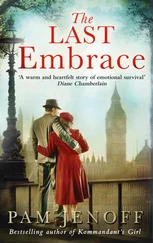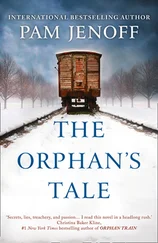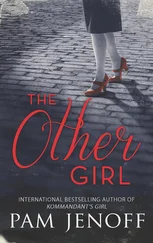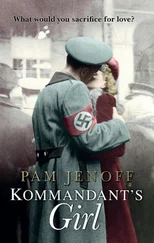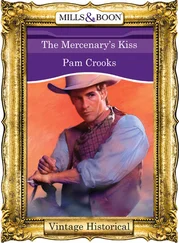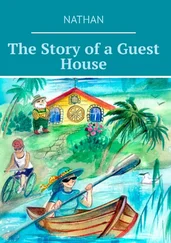She was halfway up the hill when a rooster crowed. Helena smiled smugly, as though she had outplayed the animal at its own game. Pausing, she turned and scanned the horizon again, gazing out at the rolling Małopolska hills. Beyond them to the south sat the High Tatras, their snowcapped peaks obscured by mist. She gazed up at the half crescent moon that lingered against the pale early-morning sky. The wind blew then and the moon seemed to duck behind some silvery gray clouds, casting light around the edges.
Helena bent to untangle the frayed hem of her skirt from the tops of her boots with annoyance. Her eyes dropped once more. Biekowice was just one of a dozen or so villages surrounding the larger town of My´slenice, spokes on a wheel fanning across the countryside. The entire region had been part of the Austrian empire not thirty years earlier and the latticed, red roof houses still gave it a slightly Germanic feel. There was one road into town, feeding into a cluster of streets, which wound claustrophobically around the market square like a noose. Another road led out just as quickly. A patchwork of farms dotted the outskirts, gray smoke wafting from their chimneys to form a halo above.
Shifting the small satchel she carried, Helena continued along the western path, a pebble-strewn route that climbed upward toward the main road. In the stream that ran alongside the path, water gurgled. Her footsteps fell into an easy rhythm. Despite her mother’s admonitions, Helena had escaped to the woods frequently as a child. In the confines of their small cottage, she bounced about restlessly like a rubber ball, with nowhere for her energy to go. But this was the one place she could be by herself and truly feel free.
Pine needles crackled beneath her feet, breaking the stillness, their scent mixing with more than a hint of smoke. What brush or refuse could the farmers be burning now? Everything, even items once discarded, might have some use. Leaves and twigs could, if not fuel a fire, at least make it burn longer, stretch the logs or make them hotter when the wood in the pile was damp. She scoured the ground now as she walked, looking for dropped berries or nuts or even acorns that might be used for tea. But the earth here was picked bare by the animals, as ravenous and desperate as she.
The war had broken out more than fifteen months earlier, and for a while, despite the warnings that crackled nonstop across the radio, first in Polish and later in German, it seemed as though it might not have happened at all. Though their small village was less than twenty kilometers from Kraków, little had changed other than the occasional passing of military trucks on the high road outside town. It was the blessing, Helena reflected, of living in a place so sleepy as to be of no strategic value. But the hardships had come, if not the Germans themselves: herds of cattle and other livestock disappeared in the night, reportedly over the western border. Coal stores were requisitioned and sent to the front to help the war effort. And an unusually cruel summer drought had contributed to the misery, leaving little to be canned for winter storage.
She reached the paved road that led toward the city. It was deserted now, but exhaust hung freshly in the air, suggesting a car or wagon had passed recently. Helena’s skin prickled. She could not afford to encounter anyone now. She looked longingly back toward the trees, but taking the steep, winding forest path would only slow her down.
As she started forward, Helena’s thoughts turned to the previous evening. “Don’t go,” Ruth had begged as they readied the children for bed. They’d worked seamlessly in tandem as they’d completed the familiar grooming chores, like two appendages of the same body. “It’s dangerous.” She accidentally pulled Dorie’s braid too hard, causing her to squeal.
Ruth’s objection was familiar. She had fought Helena since she’d first proposed going to the city, continuing Tata’s weekly pilgrimage after his death. It was not so much that the half-day trek was physically demanding; Helena had navigated the steep, rocky countryside with her father all her life. But the Nazis had forbidden Poles from traveling beyond the borders of their own provinces without work passes. If they noticed Helena and asked questions, she could be arrested.
“What other choice do we have?” Helena had asked practically, pulling the nightdress over Karolina’s hair, savoring her freshly washed smell. They did baths twice a week, Karolina first, then the older children and Ruth and finally Helena, scrubbing as well as she could in the cool, filmy water after the rest had gone to bed. “We have to make sure Mama eats.” And is not mistreated, she added silently. The care at the sanatorium was minimal, the resources scarce. She hadn’t told Ruth of the times she’d turned up to find their mother missing her socks or lying in her own excrement, risking infection of the bedsores she persistently developed from not being turned.
Ruth had not answered, but continued unbraiding Dorie’s hair, lips pursed in conflict. Helena knew that Ruth found the notion of Mama shut away in some city hospital alone unbearable, and that Helena checking on her each week gave her some comfort. Ruth feared the outside world, though. She had responded to everything that had happened by closing off and drawing within.
Helena, on the other hand, wanted to see the world. Her mind reeled back to an earlier trip to the city. It was a fine fall day, some leaves still orange on the trees, others giving a satisfying crunch beneath her feet. She had passed the turnoff for the city and it was a good two kilometers down the road before she realized she was on the path that would lead away from Biekowice for good. Ruth’s face had flashed in her mind then and Helena had stopped, guilt-stricken. She had been distracted, she told herself, and accidentally missed the turn. But she knew it was something more—for a moment she was actually leaving, without looking back. She had not taken that path again, but each trip she stopped and looked longingly down the road, wondering how far she could actually go.
Helena was jolted from her thoughts by a loud noise, a giant’s foot crunching down on a house. Ahead, a German jeep, machine gun mounted on the front, blocked the roadway. Helena leaped back into the roadside brush, catching her hand on something jagged. She stifled a cry as a thorn cut through her worn glove and into her skin.
As blood seeped through the wool, Helena berated herself silently for her carelessness in not clinging to the cover of the trees that lined the road. She crouched low to the ground, not daring to breathe. But it was too late: the gun mounted atop the jeep turned toward her with a creak. A soldier stood behind it, his gaze seeming to focus just above her. He shielded his eyes, searching the forest. This was the closest Helena had come to the war and, despite her terror, she found herself studying the man. He was ruddy faced and ordinary; save for the uniform and gun, he might have been one of the loggers down at the mill.
The soldier’s eyes narrowed, a mountain wolf hunting its prey. A hand seemed to grip Helena’s throat, squeezing. Would he arrest her or shoot her here? She was suddenly desperate to be in the house that an hour ago she had so eagerly escaped. Her heart pounded as she imagined her death. Ruth would be sad, or maybe cross. “I told you so,” her twin might say if she were here now, a smug smile playing about her full lips. Ruth liked to be right more than just about anything and Helena seemed to always give her reason by spilling or breaking something. Helena pictured Michal, wise beyond his years, comforting his sisters. But the little ones were closer to Ruth, depended on her for their care. And they had been so battered by the loss of their parents that they might weather this additional blow without much grief.
Читать дальше
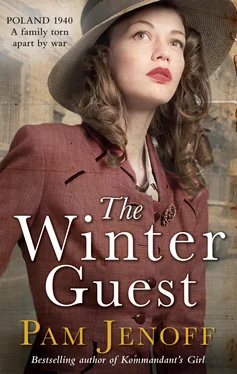
![О Генри - Граф и свадебный гость [Черное платье] [The Count and the Wedding Guest]](/books/405331/o-genri-graf-i-svadebnyj-gost-chernoe-plate-th-thumb.webp)
